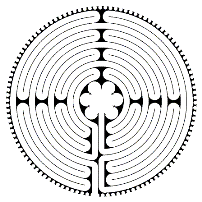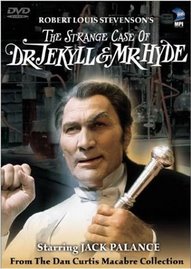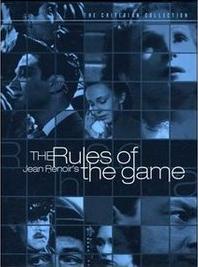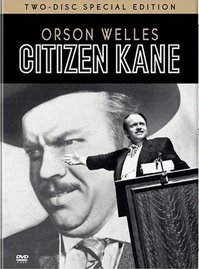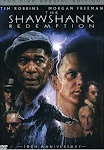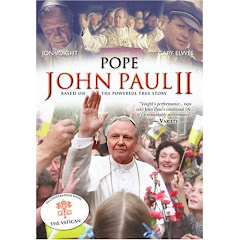Thursday, March 27, 2008
Common-sense philosophy for managing change?
On the other hand, there seems to be those business "leaders" with philosophical approaches that are founded on their personal greatness. They call on change managers to help them when they see themselves as innocent, blameless, god-like, inherently omniscient, the true standard of goodness, deserving of praise, if not idolization, for their depth of humanity. They seek more effectiveness from the change effort.
Is there a common-sense philosophy of change management that can better deal with both extremes of such business "leader" philosophies, other than simple behavior modification with limited duration?
I've posted this on LinkedIn as well. To see what others answered there click here.
What do you think?
John
Head v. Heart
Conflict between head(logic) and heart (emotions).
Sometimes, just sometimes, we find ourselves in a conflicting situation of decision making; our heart (emotions) says something and our head (logic) says something else. Let me explain to you. You joined your first company; that company gave you an opportunity to make mistakes and learn; gave you career and position; gave you life style etc and etc. Then after seven years of your employment with that company, you found another opportunity in another company giving you a jump of three designations (something that might take you 5-7 years in your present organization) and a salary hike of 120% (something that might take at least 3-4 years in your present company). Your heart is stopping you to accept that offer but your mind is forcing you to accept it. What will you do?
Let me give another example. You are in love with one person. Both of you appears to have been made for each other. Both you love to spend time together. That person is very nice, very caring, very loving, etc and etc but not doing so well in his career and professional life. There is another person (who is interested in you but not the other way), who have everything else; he have position, money, fame, social respect etc and etc. Yes, love is important in life. To love someone and to be loved by someone is a great thing to happen in life; but, love cannot give you food, clothes and house. What will you do in such scenario?
Let’s take another example. You got a job in another city / country. A very good opportunity. Giving you international exposure. Good Position. Something that can put your career on a fast track. This is an opportunity that you cannot afford to miss. But you also have family to take care. Your family is not interested to move to a different country. These are some of those cases, where we find our head and heart in conflicting situation. What do you generally do in such situations?
Kindly share your views and experience.
Here is the answer I posted on LinkedIn:
It is quite normal to have these conflicts when a real issue presents itself like the ones you describe. It signals the call to the adventure of making the decision.
The underlying problem is a failure of our education systems to teach the difference between making choices among exclusive alternatives supplied by someone else, making judgments based on pre-established assumptions and evidence, the credibility of which is questionable, and making decisions.
Making choices always involves present, short-term issues. Making judgments always involves situations that are already past, even those where predictions of the future are based on the past. By contrast, decision making is future oriented.
Moreover, decision-making involves a considerably different process which I have been describing to colleagues on LinkedIn over the past year or so.
Please consider looking at links to my blog that: (1) describe creative decision-making; (2) connect you to previous discussions on LinkedIn; and (3) provide you other resources you may find helpful.
The head and the heart, and the soul and the spirit, must become aligned through a series of stages in decision-making and before the final decision is reached. Otherwise the dis-integration will become more pronounced when you try to fully execute your decision. Our heads are most especially involved in milestone 8 of the Decision-Maker's Path (tm), while our hearts become more involved in milestone 9.
Hope this helps.
Obviously, there is much more that can, and probably should be said. But that's the purpose of this whole blog. Find other answers on LinkedIn as well.
What do you think?
John
Monday, March 24, 2008
Miracles
Here is my summary of answers posted before it was flagged:
"My summary take on the issue:
On the one hand, there are objections:
(A) Change management is an effort at control and miracles are outside of our control. The acceptable way to work with miracles is to consider them as luck. Work hard and prepare well (Bjorn);
(B) Change is not accomplished by one-time miracles (Sherri), but is more organic. Approach it more naturally like tending a garden (Kevin);
(C) Introducing "miracles" into discussions invites divisive debates about religious beliefs (LB) and suggestions about where such talk is more appropriate (Jorgen);
(D) Depending on the source of the "miracle," it is still a matter of choice of what to believe. (Cristina)
On the other hand, some:
(E) see no limitations (Ryan) because God (not god or gods) is ultimately the cause (Ralph);
(F) see miracles as a change of consciousness (Elaine);
(G) see miracles everyday and encourage seeking miracles without limitation, but warn against thinking God's a miracle-machine (Arne);
(H) see life as miraculous for people of faith (MarcArthur).
I answer as follows: Miracles, supernatural interventions by God into the natural order of life, happen. They happen every day to and in view of people all over the world. Their chief limitation is that miracles convert the mind by force of evidence whereas change is accomplished by change of heart (will). A miracle may be necessary in helping some achieve change but a miracle is not sufficient to force change. We, with our God-given free will, may still resist the message of the miracle.
In reply to the responses, I say:
(A) & (E) In the most difficult situations, praying for a miracle after hard work and preparation is the way miracles have traditionally been sought. (Ask and you shall receive.) Miracles may appear as luck to those yet to receive the gift of faith in God.
(B) & (F) Change is not accomplished by one-time miracles, unless the one-time change is a change in consciousness which is the inner response to outward signs of miracles. Seeds must be sewed in good soil, but they sprout as if all at once.
(C)& (G) Permitting miracles to be discussed in change management may result in more unifying conversations about where changes must take place: in our hearts, not just in our minds. ("Believe me...the hour is coming when you will worship the Father neither on this mountain nor in Jerusalem...").
(D)& (H) When a person believes that God is the source of a miracle, which is correct by definition, he or she has arrived at this belief, neither by mere choice among available alternatives nor by rational judgment based on pre-established criteria, but by a process of decision-making. In that process, the person has assented to what God wants shown by way of the miracle. (The blind see; those who don't are blinded.) Those who “get it” may be grateful. Those who don’t may want to renew their sense of wonder. "
The question was flagged for the following "reasons":
This question has been flagged by other users as:
* inappropriate content
* misrepresentation
* other
What do you think?
John
Books for Decision-Makers
Below are links to books for decision-makers organized by relevant questions and answers that relate to particular milestones along the Decision-Maker's Path (tm). An alphabetical listing of books may be found at: Alphabetical List of Books.
Books for Decision-Makers
1. Where are you coming from?
- Your Life as Story
- Leisure The Basis Of Culture
- The Rise of the West: A History of the Human Community
- When God Writes Your Life Story: Experience the Ultimate Adventure
- REDEMPTOR HOMINIS
2. Where are you wanting to go?
- Living with the End in Mind
- End of Time: A Meditation on the Philosophy of History
- Touching the Void
- Young Men and Fire
- Death and Immortality
- Insight: A Study of Human Understanding
- Understanding and Being
- Verbum: Word and Idea in Aquinas
- The City of the Gods
- Time and Myth
- A Search for God in Time and Memory
- The Way of All the Earth: Experiments in Truth and Religion
- The Homing Spirit
- The House of Wisdom
- The Peace of the Present An Unviolent Way of Life
- The Reasons of the Heart
- The Road of the Heart's Desire
- Loves Mind: An Essay on Contemplative Life
- Reading The Gospel
- The Mystic Road of Love
- A Vision Quest
- Deep Rythym and the Riddle of Eternal Life
- DIVES IN MISERICORDIA
3. What are you waiting for?
- Thinking With a Pencil
- The Elements of Style
- WFF 'N PROOF
- Adler's Philosophical Dictionary
- The Great Ideas: A Lexicon of Western Thought
- Some Questions About Language
- Tractatus Logico Philosophicus
- Philosophical Investigations
- How To Find Your Mission In Life
- How to Read a Book
- How to Win Friends & Influence People
- How to Speak How to Listen
- How to Think About God
- How to Think About the Great Ideas
- Memorize the Faith
- The Mind Map Book
- Way of the Winding Path: A Map for the Labyrinth of Life
- The Writers Journey: Mythic Structure for Writers, 3rd Ed
- The Hero's Journey
- The Hero's 2 Journeys
- The War of Art: Winning the Inner Creative Battle
- LABOREM EXERCENS
4. What are your wise ones generally advising?
- Greek Myths for Young Children
- Classic Myths to Read Aloud
- Philosophy for Kids
- Philosophy 101 by Socrates
- Young Person's Guide to Philosophy
- The Lord of the Rings and Philosophy
- Does the Center Hold?: An Introduction to Western Philosophy
- Looking At Philosophy: The Unbearable Heaviness of Philosophy Made Lighter
- In Defense of Philosophy
- The Story of Philosophy
- Great Books of the Western World
- History of Philosophy, Volume 1
- History of Philosophy, Volume 2
- History of Philosophy, Volume 3
- History of Philosophy, Volume 4
- History of Philosophy, Volume 5
- History of Philosophy, Volume 6
- History of Philosophy, Volume 7
- History of Philosophy, Volume 8
- History of Philosophy, Volume 9
- Great Treasury of Western Thought
- A Brief Reader on the Virtues of the Human Heart
- Back to Virtue
- The Politically Incorrect Guide(tm) to American History
- The Politically Incorrect Guide(tm) to Capitalism
- The Politically Incorrect Guide(tm) to Islam
- The Politically Incorrect Guide(tm) to the Constitution
- The Collected Dialogues of Plato
- The Trial of Socrates
- Aristotle for Everybody
- Intellect: Mind over Matter
- Hard Thinking
- Socratic Logic 2E
- The Difference of Man and the Difference It Makes
- The Four Dimensions of Philosophy
- Six Great Ideas
- Ten Philosophical Mistakes
- Desires, Right and Wrong
- Paideia Proposal
- Paideia Problems & Possibilities
- Discourse on Method and Meditations on First Philosophy
- Who Are You?: 101 Ways of Seeing Yourself
- Religion and the One: Philosophies East and West
- Eastern Religions & Western Thought
- The Gospel of John in the Light of Indian Mysticism
- Sadhu Sundar Singh: Essential Writings
- Autobiography of a Yogi
- Responses to 101 Questions on Hinduism
- The Law Code of Manu
- Complete Works of Swami Vivekananda
- Gospel of Sri Ramakrishna
- Kali's Child
- The Road Less Traveled
- People of the Lie
- Self Knowledge in Thomas Aquinas
- Religion and the Rise of Western Culture
- Fear and Trembling
- The Phenomenon of Man
- The Divine Milieu
- Method in Theology
- Augustine for Armchair Theologians
- Introduction to Saint Thomas Aquinas
- Josef Pieper: An Anthology
- First Glance At Thomas Aquinas
- Aquinas 101: A Basic Introduction
- Aquinas for Armchair Theologians
- Aquinas's Shorter Summa
- A Shorter Summa: The Essential Philosophical Passages
- An Introduction to Philosophy: The Perennial Principles of the Classical Realist Tradition
- An Introduction to the Metaphysics of St. Thomas Aquinas
- Guide to Thomas Aquinas
- The Christian Philosophy Of St Thomas Aquinas
- Elements of Christian Philosophy
- St. Thomas Aquinas Summa Theologica
- A Summa of the Summa
- Dante the Philosopher
- Methodical Realism
- The Unity of Philosophical Experience
- The Spirit of Mediaeval Philosophy
- God and Philosophy
- The Rule of Saint Benedict
- St. Benedict's Toolbox
- The Spiritual Life
- The Spirit Of Catholicism
- The Aquinas Catechism
- Catechism of the Catholic Church: Second Edition
- Guide to the Catechism of the Catholic Church
- The Apostles
- Ignatius Catholic Study Bible
- Complete Jewish Bible
- A Marginal Jew: Rethinking the Historical Jesus
- St. Francis of Assisi and the Conversion of the Muslims
- SLAVORUM APOSTOLI
5. What are the pros and cons of the issue?
6. What are the "Powers That Be" saying?
- Gorgias
- Abuse of Language, Abuse of Power
- St. Thomas Aquinas on Politics and Ethics
- Treatise on Law
- Treatise On Happiness
- Utopia
- The Pilgrimage of Grace
- After Elizabeth
- Inventing America
- We Hold These Truths
- Hope of the Wicked
- Tragedy & Hope: A History of the World in Our Time
- Comrade J
- Gangster Capitalism
- Killing Pablo
- Utopia of Usurers
- The Creature from Jekyll Island
- Imperial Life in the Emerald City
- The Shock Doctrine
- Ethics and the National Economy
- What Happy Companies Know
- The Jesuits
- Heroic Leadership
- Happiness and Contemplation
- REDEMPTORIS MATER
7. What is your real agenda?
8. What are the facts and reasons you are contending with?
- First Comes Love
- Reasons to Believe
- Heretics
- Ecumenical Jihad
- The Rhine Flows into the Tiber
- Turmoil & Truth
- Labyrinths of Reason: Paradox, Puzzles, and the Frailty of Knowledge
- Truth in Religion
- A Rulebook for Arguments
- Fallacy: The Counterfeit Of Argument
- Aquinas in the Courtroom
- Turning Points of the Civil War
- Lincoln at Gettysburg: The Words that Remade America
- Lincoln on Leadership
- Lincoln's Greatest Speech: The Second Inaugural
- Abraham Lincoln and the Second American Revolution
- Lincoln's Melancholy
- Team of Rivals: The Political Genius of Abraham Lincoln
- Socrates on Trial
- Socrates on Trial: A play
- Socrates Meets Descartes
- Socrates Meets Machiavelli
- Socrates Meets Sartre
- The Unaborted Socrates
- Socrates Meets Jesus
- The Order of Things
- The Spiritual Exercise of St. Ignatius Loyola
- Ignatius of Loyola: Spiritual Exercises
- Thirty Days: On Retreat with the Exercises of St. Ignatius
- A 12-Step Approach to the Spiritual Exercises of St. Ignatius
- Do It at Home Retreat
- The Dolorous Passion of Our Lord Jesus Christ
- REDEMPTORIS MISSIO
9. What insights and oversights are emerging?
- Chicken Soup for the Soul: Living Your Dreams
- King Saul, the Tragic Hero
- Dreams: A Study of the Dreams of Jung, Descartes, Socrates
- Dreams: God's Forgotten Language
- Angels and Us
- Angels and Demons: What Do We Really Know About Them?
- The Angels and Their Mission
- Enthusiasm and Divine Madness
- "Divine Madness": Plato's Case Against Secular Humanism
- The I Ching or Book of Changes
- The I Ching Coloring Book
- The Visual I Ching
- Tao Te Ching, 25th-Anniversary Edition
- Baseball Tarot
- The Mythic Tarot
- Le Tarot De Marseille Deck
- Meditations on the Tarot
- Tarot and the Journey of the Hero
- Contemplatives in Action
- Befriending Our Desires
- Christianity for Modern Pagans: Pascal's Pensees
- Finding God in All Things
- Orthodoxy
- Fides et Ratio
- The Philosophy of Jesus
- The Silence of St. Thomas
- Thomas Aquinas Theologian
- The Way of Paradox
- Thomist Realism and the Critique of Knowledge
- The World of Silence
- The Kingdom Within: The Inner Meaning of Jesus' Sayings
- The Mystical Theology of St. Bernard
- Mystical Christianity
- Saint Francis of Assisi
- Saint Thomas Aquinas: The Dumb Ox
- Jesus As Teacher
- Jesus the Teacher
- Jesus of Nazareth
- Entering into the Heart of Jesus
- Understanding "Our Father"
- Swear to God: The Promise and Power of the Sacraments
- Ten Prayers God Always Says Yes To
- Yoga for Christians
- The Examen Prayer
- The Discernment of Spirits
- God Is Near Us
- A Key to the Doctrine of the Eucharist
- Grace and Freedom
- Jesus and the Victory of God
- Because God Is Real
- Love Is Stronger Than Death
- Love Alone Is Credible
- Salvation Is from the Jews
- The Arts of the Beautiful
- CENTESIMUS ANNUS
- VERITATIS SPLENDOR
10. How are you telling the story of your decision?
- Committed to Memory
- A Gerald Manley Hopkins Reader
- Four Quartets
- Dove Descending
- Last Tales
- Seven Gothic Tales
- Winter's Tales
- Cinematic Storytelling
- A River Runs through It and Other Stories
- Gone with the Wind
- Atonement: A Novel
- And Then There Were None
- Animal Farm
- Don Quixote
- Brave New World
- Catch-22
- Pride and Prejudice
- The Catcher in the Rye
- The Quiet Light: A Novel About Thomas Aquinas
- The Golden Thread: A Novel About St. Ignatius Loyola
- Latin Sayings for Spiritual Growth
- My Way of Life
- Scripture Matters
- Letter & Spirit
- The Mind of the Maker
- The Prophetic Imagination
- The Future of Man
- The New Testament and the People of God
- To Kill a Mockingbird
- The Human Factor
- The Shawshank Redemption
- Christ the Lord: Out of Egypt
- Christ the Lord: The Road to Cana
- All's Well That Ends Well
- Antony and Cleopatra
- As You Like It
- Cymbeline
- Hamlet
- Henry IV, Part One
- Henry IV, Part Two
- Henry V
- Henry VIII
- King John
- King Lear
- Love's Labor's Lost
- Macbeth
- Measure for Measure
- Pericles
- Richard II
- Romeo and Juliet
- The Comedy of Errors
- The Merry Wives of Windsor
- The Tempest
- The Two Gentlemen of Verona
- The Winter's Tale
- Timon of Athens
- Troilus and Cressida
- Will in the World: How Shakespeare Became Shakespeare
- Shakespeare the Thinker
- Shakespeare the Papist
- The Illusion of Power
- Her Majesty's Spymaster
- Shadowplay
- EVANGELIUM VITAE
11. What are you willing to risk to gain what you can only be hoping for?
12. How are you determining that the decision you discern is the right one?
- Everything You Ever Wanted to Know About Heaven, but Never Dreamed of Asking
- Heaven: The Heart's Deepest Longing
- God's Passionate Desire
- Simply Christian: Why Christianity Makes Sense
- The God Who Loves You
- The Kingship of Christ
- The Last Word
- Only the Lover Sings
- John Paul II: The Encyclicals in Everyday Language
- Agenda for the Third Millennium
- Living the Mysteries
- The Mass Of The Roman Rite
- The End: A Study of the Book of Revelation
- The Lamb's Supper: The Mass as Heaven on Earth
- The Violence of Love
- The Evidential Power of Beauty
- Before I Go
- A Friendship Like No Other
- A Travel Guide to Heaven
- Surprised by Hope
- The Everlasting Man
- ECCLESIA DE EUCHARISTIA
